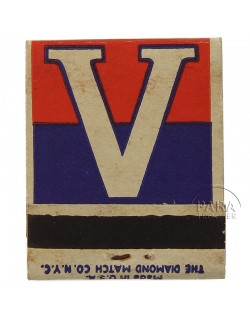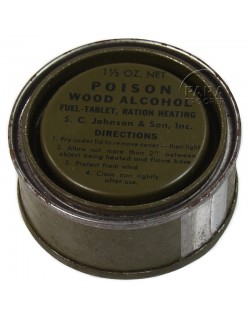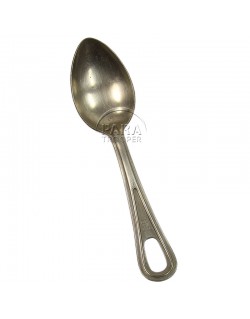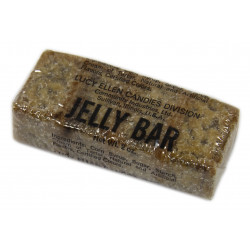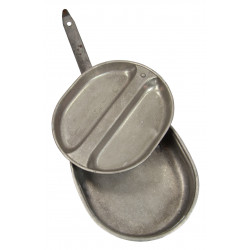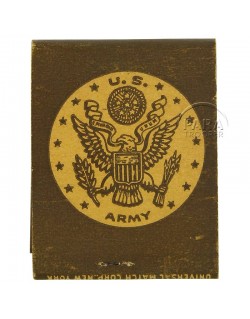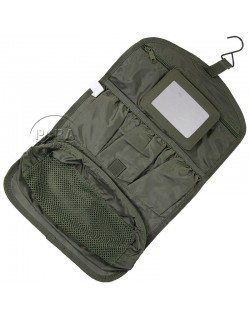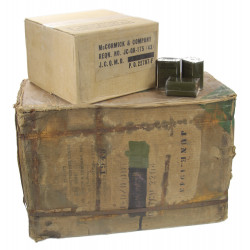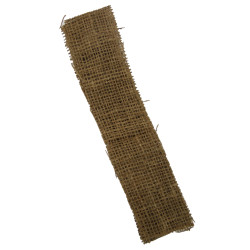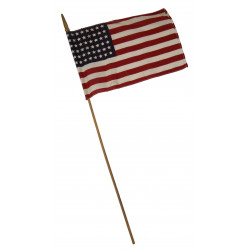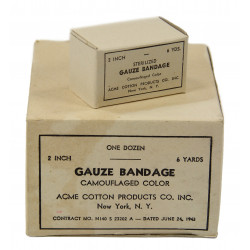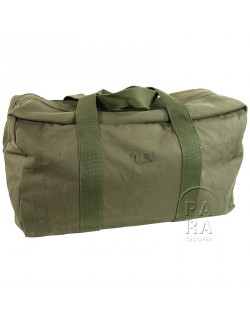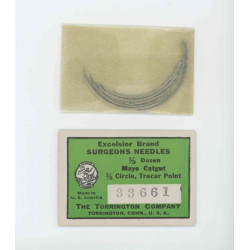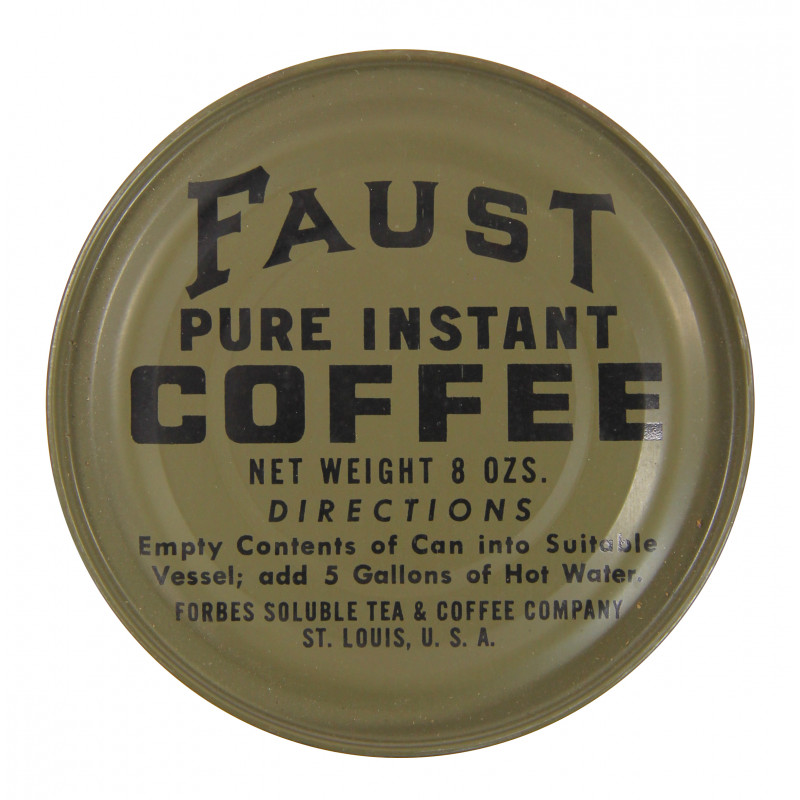








(1 review)
Can, Ration, Instant Coffee, OD, Faust, 1944
€39.00
€29.00
Tax included
Genuine WWII US OD tin can of soluble coffee made by Faust Soluble Tea and Coffee Co., U.S.A.
Mint, unopened condition.
Comes straight from its original wooden crate, dated 1944.
Coffee and tea merchant Cyrus Blanke noticed that a spilled drop of coffee on a hot pie plate had evaporated, leaving behind a dry residue. Realizing that adding water to the powder turned it back into coffee, he quickly began production and brought it to market in 1906. He named it after the restaurant the incident occurred: Tony Faust’s Oyster Café in St. Louis.
Product Details
ANC32782
Customer reviews
Reviews about this product
-
Incroyablement bon, même après 80 ans! Merci beaucoup!







